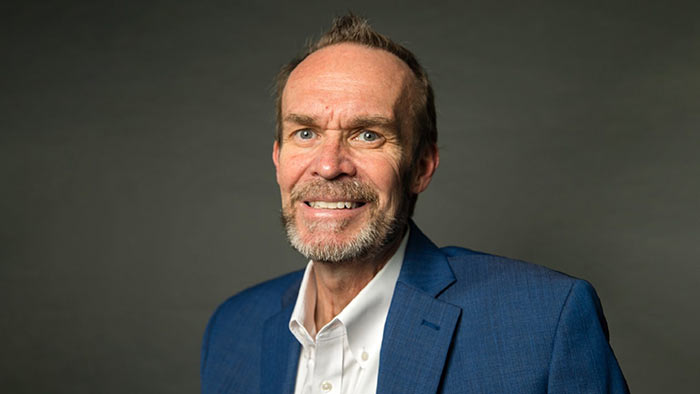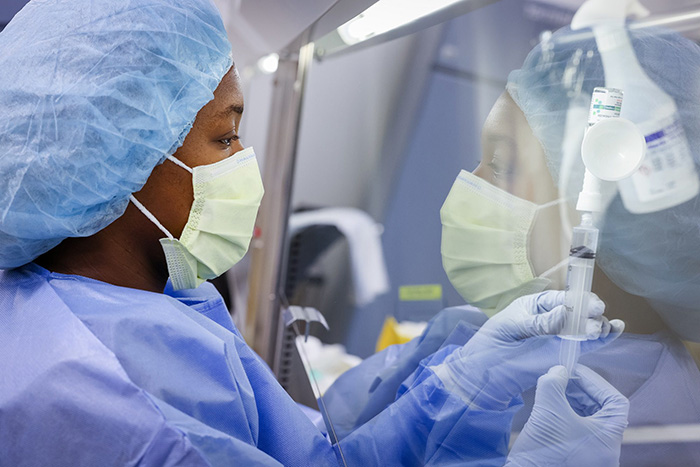Heart Health As Cancer Prevention
First of all, it’s important to make clear that following a heart-healthy lifestyle is also the best way to reduce the chance of developing cancer.
“If you work on preventing cardiovascular disease,” says Mandawat, “you decrease your risk of cancer as much as 20% going forward.”
This means controlling your blood pressure and cholesterol, getting enough physical activity, and not using tobacco.
People with the highest risk of cardiovascular issues during or after cancer treatment are those who already have preexisting cardiovascular disease.
“So it’s become really important to not just recognize those patients,” says Mandawat, “but to also optimize their cardiovascular disease before they start their treatment.”
How Does Cancer Treatment Affect Heart Health?
As more people with cancer survive and thrive because of improved treatments, Mandawat says the question becomes how to improve their other outcomes beyond their cancer therapy.
“It also turns out,” he says, “that patients who receive cancer treatment are at higher risk of developing cardiovascular issues, both during their treatment as well as after their treatment.”
As they live longer, they also reach the age where cardiovascular disease becomes more of a concern.
Several earlier drug therapies had a history of causing heart issues, and some newer drugs and even leading-edge immunotherapy are associated with heart-related issues.
“We’re learning more about them over time,” Mandawat explains, “and particularly over the last five to 10 years. But certainly, a large portion of cancer therapy is associated with acute as well as chronic issues with your heart.”
He says the first priority is to try to prevent those issues, help manage them if they do occur, and monitor patients who experience heart issues “so that in the long-term their heart stays safe after they’ve successfully treated their cancer.”
Why Don’t We Hear Much About Heart Cancer?
The heart can be affected by two types of tumors: primary and secondary. Mandawat explains that primary tumors in the heart are extremely rare and mostly benign, with only a small portion that are malignant (cancerous). Secondary tumors that originate from another type of cancer—such as lung cancer, breast cancer, melanoma, etc.—can metastasize (spread) to the heart. Interestingly enough, medical science hasn’t yet answered the question as to why the heart, of all the body’s organs, is less prone to primary cancers than the body’s other organs. The leading hypothesis, says Mandawat, is that cardiac cells do not divide or replicate, making them less prone to developing growth mutations that lead to cancer.
How Can Someone Reduce Their Risk of Heart Issues After Cancer Treatment?
Before someone begins their therapy, Mandawat says they are advised that their therapy will have an effect on their heart, and their care team will do everything possible to minimize it. This means working with the patient on any concerning risk factors—such as high blood pressure or cholesterol, tobacco smoking, inactivity, or significant obesity. It means gathering information on any preexisting disease, such as stents or atrial fibrillation.
“If they’ve had anything abnormal with the heart, we make sure that they’re on good medicine and they’re optimized” to be able to do their therapy, says Mandawat.
The care team also develops a personalized monitoring plan for the patient based on any known toxicities of the particular drug they receive.
“We tell our patients what we don’t want to happen is that you are successful at treating your cancer but in the end you wind up with debilitating heart disease,” says Mandawat. “So creating a plan to help ward that off while also being able to continue your cancer therapy is really important.”
The last thing you want is to have to stop cancer therapy, temporarily or even permanently, because of cardiovascular issues.
“That’s one of the big reasons why controlling your risk factors, controlling preexisting disease, and developing a good monitoring plan are keys to be able to ward off debilitating heart disease as soon as we can and even prevent it,” says Mandawat.




